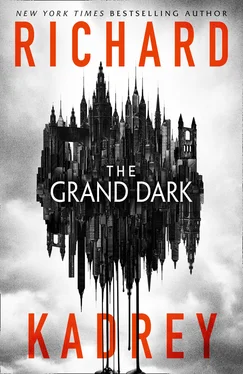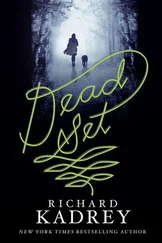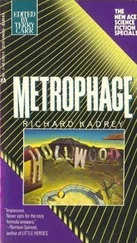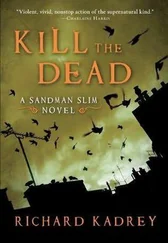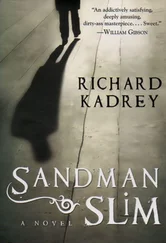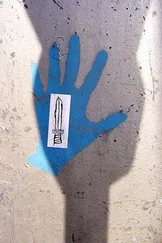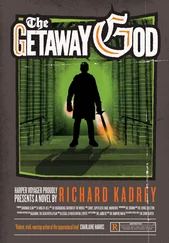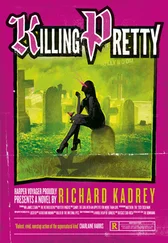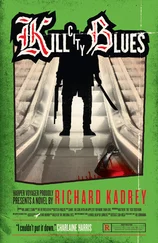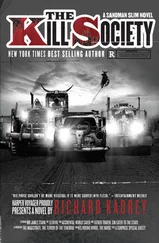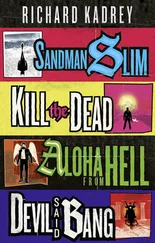“I had no choice.”
“I see. I assume they searched you? What did the officers say when they discovered your knife?”
Reluctantly, Largo said, “I didn’t have it.”
Branca looked at the ceiling. “Where is it?” he said.
“At home.”
“I see. You didn’t go home last night?”
“No. I was with a sick friend.”
“Of course,” said Branca. He looked thoughtful for a moment. “Perhaps it was a lucky thing, this sick friend of yours. If the police suspected you of a crime they might have misconstrued the knife.”
“Do you think it’s safe for me to continue wearing it?”
Branca clasped his hands behind his back. “You must make a choice. Which is the greater fear: the police, or losing your job and possibly your life?”
“I want to keep my job. And my life.”
“A wise choice. See that you don’t forget the knife again.”
“I won’t.”
“All right. Enough of this nonsense. You have deliveries to make,” said Branca. He went back behind his desk.
“Then I’m not fired?”
“We’ll see. I’m not happy about the police incident, but I applaud you for your honesty.” Branca looked at a few parcels stacked on a battered wooden worktable. He picked up one and weighed it in his hands. “This will do nicely. I suspect you’ll wish you had your knife with you this morning.”
Largo looked at the package and wondered what was inside. He tried reading the address, but it was too far away. Is the old bastard just giving me a hard time or sending me off to get killed? he wondered. “I’ll get the knife during my lunch break,” he said.
“Another wise choice,” said Branca. “Tell me, does this sick friend of yours have any other friends?”
“Yes. Many.”
“Then perhaps one of them can visit tonight so that you won’t be tardy tomorrow.”
Largo shifted his weight from one foot to the other. “It won’t be necessary. She’s much better now.”
“I’m nearly fainting in delight,” said Branca, handing the parcel and an old shoulder bag to Largo, who took them and started out.
“Largo,” said Herr Branca.
He stopped and turned around.
“I approve of your shirt. It’s good to see you dressing a bit more professionally. I should have the money for your clothing stipend tomorrow. That’s all.”
Largo nodded to Branca and went out to his bicycle. He was excited at the prospect of having some decent clothes to wear. However, when he read the address on the parcel the excitement evaporated.
I was right.
The prick wants me dead.
Machtviertel had never really been a neighborhood, merely a collection of coal power plants, warehouses, and rail hubs. The plants produced power for much of the western half of Lower Proszawa, but its location had been chosen primarily to provide an endless source of heat and electricity for the armaments factory. However, when it switched to plazma power many years earlier, that left a surplus of coal in the district and more workers than it needed. Yet no one lost their job. The government kept the trains coming and let the coal pile up. They calculated that it was better to pay the workers than let them sit idle. And so the coal continued to grow. The coal continued to burn. And thus Machtviertel became a walled city within the city, ringed by a moat of filth.
Smoke from the coal towers blanketed the district in perpetual darkness. A thick crust of carbonous dust covered everything. Around the active buildings, workers left black footprints in their wake. By the warehouses where trains offloaded their cargo, there were great ebony dunes that turned to thick mud in the rain. Machtviertel had a hellish reputation in the city, partly for the environment, but also for its inhabitants. People lived in the older, disused power stations and warehouses. There was a saying in Lower Proszawa: “Those who live in Machtviertel are insane. But those who seek them out are madmen.”
It took Largo almost an hour to bicycle there. He stopped beside the largest of the abandoned power plants, commonly known as the Black Palace. When it had been built, the dynamos’ home was a showcase for Lower Proszawa’s strength and ingenuity. The smokestacks rose one hundred feet into the air and the stonework on the front of the plant had been carved into old mythological scenes. At the top, giants pulled iron from the ground and molded it with volcanic fire. Lower and at street level, smaller spirits and artisans molded the iron into metal towers and wires, spreading light and power to a darkened land. Now, however, the Black Palace was a crumbling ebony hulk of sooty stone and rusted beams in a bleak field of coarse weeds.
Largo chained his bicycle to the base of a collapsed light tower. A murder of crows huddled a few yards away. They lifted off at the sound of his chain on the steel, cawing and circling overhead, black bird-shaped holes against an obsidian sky. He looked up at the building, sure that if Herr Branca wasn’t trying to get his throat slit, then the delivery was his supervisor’s way of telling Largo that he’d been demoted to the point that he’d spend the rest of his days delivering God knew what to Lower Proszawa’s most desolate wastelands.
Maybe I’ll be lucky enough to visit High Proszawa’s plague pits. Perhaps I’ll even get hazard pay. Then I’ll be able to afford a new flat and Remy can visit me there as I die of every foul disease known to man.
The address on Largo’s parcel was for an office on the Black Palace’s fifth floor. He squeezed through a junk-filled gap where the towering front doors had once stood. The building was absolutely silent and as he climbed the stairs Largo began to wonder if the delivery was some kind of sick joke—the company sending him far into the outlands on a pointless trip to remind him that he was lucky to have a job at all. At each landing he became less scared, instead finding himself growing angrier at the idea that the trip might be for nothing. Maybe his fellow couriers were above him in the building, waiting for him to knock so they could all laugh in his face.
Andrzej would love that .
On the fifth floor, Largo found the office under a cracked skylight so caked with coal dust that the dim light that made it through a few open areas came down in gray shafts. He held the package under one of the light patches and read the address one last time. Yes, he was at the right door. But the building remained utterly silent. It was strange. In the worst hovels in Haxan Green, there were always sounds of life, even if it was just rats in the walls. The silence of the Black Palace was what Largo imagined being walled up in a tomb must be like.
He went to the office and raised his hand to knock, but instead pressed his ear to the door. No—there was a sound. Low and rhythmic. Not the sound of voices or people, but the steady sound of a machine. Now Largo’s nervousness returned and he missed having the knife under his coat. His options were limited, and a quick look around showed nothing he might use to defend himself. He either had to turn tail and run, losing his job—and almost certainly Remy—or he could knock. In the end, he had no choice.
He knocked.
Nothing happened for a moment. But when he listened again, the sound of the machine had stopped. Before he could lean back from the door it swung open suddenly. Largo jumped back in surprise. The man in the doorway was as tall as Andrzej, but much larger. He wore a filthy sleeveless undershirt that revealed bulging arms and a barrel chest. His black beard was going gray and his greasy hair was combed straight back from his forehead. But as massive as everything about him was, it was his eyes that caught Largo’s attention. They were yellow, as was his skin. Jaundice , he thought, and quickly tried to remember if he’d ever heard about yellowed skin having anything to do with the Drops. He didn’t get to think very long before the man spoke.
Читать дальше
